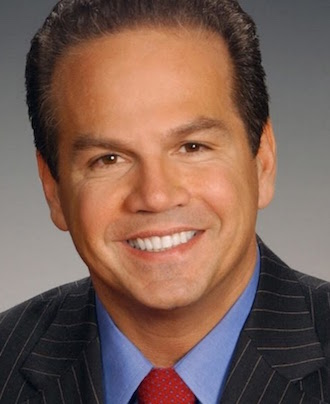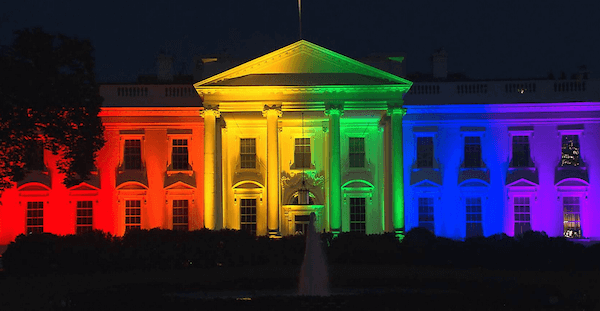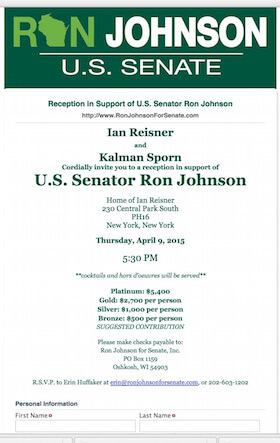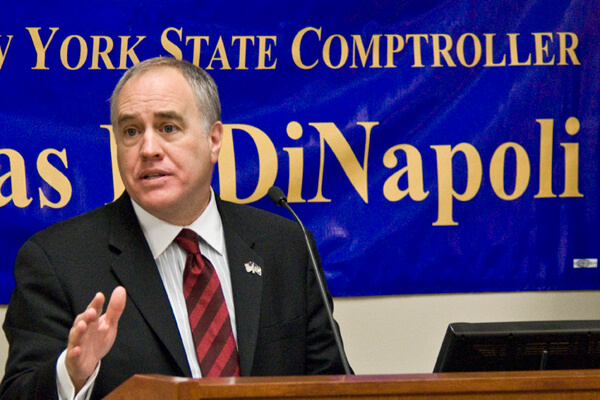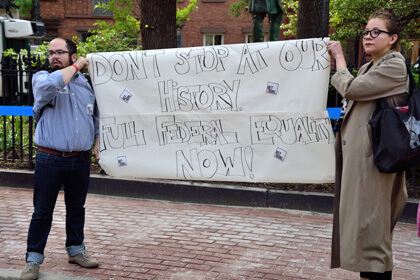US Representative David Cicilline, an out gay Rhode Island Demcrat. | US CONGRESS
Comprehensive civil rights legislation providing federal nondiscrimination protection to the LGBT community, originally expected to be introduced in Congress in June, will be unveiled at a noon press conference on Thursday, July 23 in Washington, Gay City News has confirmed. Word that the bill was ready to go first surfaced earlier this week in other published reports.
As the new Congress elected last November prepared to take their seats in the new year, Representative David N. Cicilline, an out gay Rhode Island Democrat, and Senator Jeff Merkley, an Oregon Democrat, began work on crafting an omnibus bill to cover discrimination in employment, housing, public accommodation, and access to credit –– comparable, Cicilline’s office says, to the protections provided on the basis of race, religion, and sex under the 1964 Civil Rights Act.
In early June, Sarah Trister, Cicilline’s legislative director, told Gay City News, “We very much hope and intend to have it introduced this month.”
That deadline came and went and, as late as July 17, Richard Luchette, a Cicilline spokesperson, responded to a request for comment about timing by writing, “Nothing new to report right now.”
This week, however, BuzzFeed, the Washington Blade, and the Advocate reported that Cicilline and Merkley are circulating “Dear Colleague” letters seeking co-sponsorship on a bill they are set to introduce imminently.
The new legislative proposal would replace the long-stalled effort to pass a narrower Employment Non-Discrimination Act, which in more than two decades only once won approval in each house of Congress –– in separate sessions. Late last year, the Human Rights Campaign, the leading LGBT lobbying group on Capitol Hill, yielded to longstanding pressure from a variety of other groups, including grassroots advocates, to broaden the scope of the nondiscrimination push.
HRC also committed to jettison the expansive religious exemptions contained in ENDA, which critics charged constituted “a license to discriminate.”
In her comments to Gay City News early last month, Trister from Cicilline’s office, emphasized the comprehensive nature of the legislative proposal and said that religious exemption language would replicate that included in civil rights laws based on race, ethnicity, sex, and other protected categories.
“Our plan is to go through statutes and existing case law so that the protections offered are exactly the same as those for other protected groups,” she said.
What Trister would not say was whether the new legislation would amend the 1964 Civil Rights Act, which is the nation’s foundational nondiscrimination statute.
“There are lots of different ways to do this,” she said, a comment that suggested there were many open questions remaining, which seemed unlikely given how close to introduction the sponsors said they were.
Sources who had seen drafts of the legislation told Gay City News that crafting of the measure had been well along for months at that point and does adopt the approach of amending the 1964 Act, as well as other existing legislation. Prior to the original introduction of ENDA back in the early 1990s, gay and lesbian advocates had pursued a path of adding sexual orientation to the 1964 Act for nearly two decades. That approach was pioneered in Congress by two New York Democrats –– Bella Abzug and Ed Koch.
The Advocate, relying on what it said was a draft of the Cicilline-Merkley bill that had circulated among a large group of advocates, also reported that the measure would amend the 1964 Act, among a number of federal statutes.
Those privy to the efforts of the working group developing the legislation –– an effort led by the Human Rights Campaign with the active participation of the Center for American Progress and the Leadership Conference on Civil and Human Rights –– have been tight-lipped and unwilling to go on the record for fear of losing their access.
Cicilline and Merkley have not responded to questions from multiple media sources as to whether they have lined up any Republican sponsors in a Congress, where both houses are GOP-controlled. The Advocate reported that Merkley would be joined by two Democrats, out lesbian Tammy Baldwin of Wisconsin and New Jersey's Cory Booker, in introducing the measure in the Senate.
Word that Cicilline and Merkley are now ready to move on their bill comes as Republicans are looking at a variety of measures to spell out religious exemptions that organizations and even individuals have in refusing to recognize same-sex marriages. A bill already introduced by Idaho Republican Representative Raul Labrador would provide a broad exemption to anyone with a religious objection to marriage by same-sex couples, a provision that could include private sector employers. Pennsylvania Republican Charlie Dent, who has supported LGBT rights in the past, is considering a more narrowly crafted alternative –– but one that would still allow exemptions for religiously-affiliated charities that act as public accommodations, such as adoption agencies.
The possibility that a generally LGBT-friendly Republican was staking out a position supporting more expansive religious exemptions than advocates for the community can support may have prompted Cicilline and Merkley to move this week on their bill.
Their measure also follows last week’s ruling by the Equal Employment Opportunity Commission that job discrimination against gay and lesbian employees or applicants is banned under existing sex discrimination provisions of the 1964 Civil Rights Act’s Title VII. The EEOC finding is not binding on federal courts, but is part of the Obama administration’s aggressive effort to push that interpretation into courts around the nation.
On July 17, Cicilline, in a statement emailed by his office, told Gay City News, “Yesterday’s EEOC ruling sends a clear message that discrimination based on sexual orientation or gender identity has no place in a civilized society. It’s important that Congress pass comprehensive anti-discrimination legislation that protects LGBT individuals in employment, housing, credit, jury service, and other core areas of daily life. I look forward to leading this fight in the House of Representatives.”

